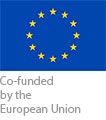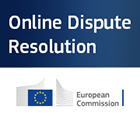Have you received a payment reminder?
When a company claims that you owe them money, whether rightly or wrongly, they may turn to a debt collection agency, a bailiff (court officer), or a lawyer. They will contact you to request payment.
But this is not a reason to panic. This procedure of amicable debt collection is regulated by law. Not everything is allowed. And most importantly: neither the collection agency, nor the bailiff, nor the lawyer can force you to pay in the context of amicable collection.
In this article, we answer the following questions:
- Do you have to pay reminder fees?
- What must a payment reminder contain?
- How can you contest a payment reminder?
- Can a foreign collection agency contact you?
- Which practices are prohibited?
- Where can you file a complaint?
Do you have to pay reminder fees?
The first payment reminder must be sent free of charge. No reminder fees may be claimed from you.
What must a payment reminder contain?
- The amount due
- The additional costs in case of non-payment within 14 days
- The name and company number of the business claiming the payment
- A description of the product or service that gave rise to the debt
- The 14-day deadline to pay before additional costs may be charged
Good to know: Did you receive an amicable collection from a bailiff? The letter must then clearly state that it does not concern a seizure or a court summons. This is to avoid confusion. A bailiff can in fact act in two ways.
You also have the right to ask the company requesting payment, or the third party it has appointed (collection agency or bailiff), to provide you with:- Documents proving the debt
- Information on how to lodge a dispute
- Payment facilities (e.g. a payment plan)
How to contest a payment reminder
If you did not order the product or service for which payment is being demanded, you should contest the amount in writing, with reasons, addressed both to the company that issued the payment request and to its representative (collection agency, bailiff, or lawyer).
Good to know: Nobody can force you to pay until a court has condemned you. Once the collection agency or bailiff receives your written, reasoned objection, they must stop all amicable collection efforts. It is then up to the company to take the matter to court.
Can a foreign collection agency contact you?
A foreign debt collection agency may contact you regarding unpaid debts, but all collection agencies, whether Belgian or foreign, must first register with the FPS Economy. The list of all licensed collection agencies in Belgium is available on its website.
Good to know: If a collection agency is not recognized by the FPS Economy, its payment request has no legal value.
This registration requirement does not apply to bailiffs or lawyers. However, they must still comply with the law on amicable debt collection, which prohibits certain practices.
Which practices are prohibited?
Deceptive or aggressive practices are strictly forbidden. Examples of illegal practices include:
- Creating the impression that the request comes from a judicial authority
- Issuing false legal threats or misleading information about the consequences of non-payment
- Indicating on the envelope that the letter concerns a debt claim.
- Claiming amounts that are not provided for or not legally permitted
- Continuing to send reminders after receiving a written, reasoned objection
Where can you file a complaint?
Several bodies are available to help you. You can contact:
- The Consumer Mediation Service, if your complaint concerns a Belgian collection agency
- The Ombudsman of Bailiffs, if your complaint concerns a Belgian bailiff
- The Ombudsman Service for Consumer Disputes relating to the Legal Profession, if your complaint concerns a Belgian lawyer
- The European Consumer Centre, if the collection agency or bailiff is based in another EU country
Good to know: If you don’t want to file a complaint but only wish to report unfair practices, you can notify: the Economic Inspection, the National Chamber of Bailiffs, or the relevant Bar Association.


